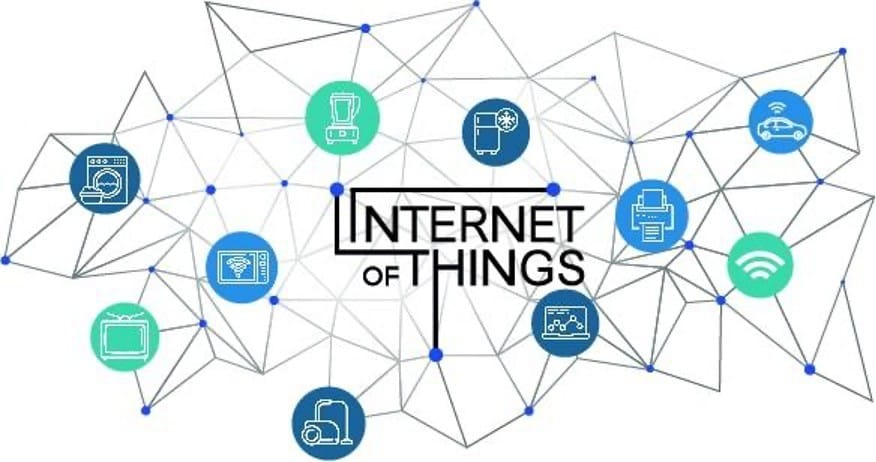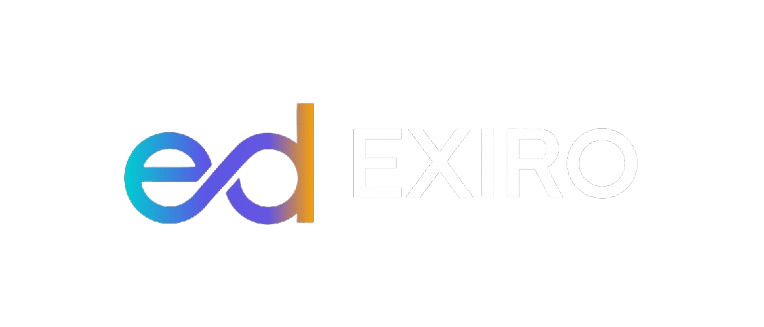
IoT technology enables businesses to optimize operations, enhance customer experiences, and develop innovative business models for sustainable growth.
IoT has the power to transform industries and redefine how we work, play, and live. Welcome to the world of the Internet of Things (IoT), where everyday items may communicate with one another and improve our lives and optimizing business operations. Regardless of your industry, IoT devices will probably contribute to the success of your business. From simple applications like smart light bulbs for a more efficient workplace to more complex ones like a network of industrial equipment detecting quality control issues in a manufacturing process, the Internet of Things may be used in many different ways. The Internet of Things (IoT) facilitates the seamless integration of digital and physical systems, thereby automating diverse processes and enhancing operational efficiency. This encompasses monitoring and regulating energy consumption, tracking asset location and condition, and automating supply chain logistics.
McKinsey reports that IoT can decrease equipment maintenance expenses by 10-40% and minimize downtime by 50%.
How IoT is Making Businesses Smarter and Faster
Cutting Costs with IoT
Businesses can integrate IoT technology and benefit from cost reductions in multiple approaches. By integrating devices and systems, businesses can automate operations and reduce manual labor demands, leading to enhanced efficiency and decreased labor costs. A factory can utilize IoT sensors to assess production line efficiency, pinpoint areas for enhancement, and minimize downtime. Secondly, IoT technology enables businesses to monitor and optimize resource utilization, including electricity and water, resulting in decreased utility expenses. Third, IoT technology facilitates predictive maintenance, allowing businesses to detect and rectify equipment issues prior to incurring expensive breakdowns, hence minimizing maintenance and repair costs.
The Internet of Things signifies an industrial revolution for small businesses, with 83% of organizations enhancing their productivity through the adoption of IoT technologies.
Boost Supply Chain Efficiency with IoT
The Internet of Things (IoT) can transform your supply chain by enabling automatic tracking of product locations, providing real-time visibility and minimizing the potential for human mistakes in documentation. By monitoring the trajectory of your trucks, railcars, or vessels, IoT may identify cases of underutilization or overutilization of transport assets, and even determine the most efficient transport route. The Internet of Things facilitates the seamless exchange of information among shippers, consignees, carriers, and freight forwarders. This facilitates more transparency, flexibility, and automation, resulting in increased efficiency.
IoT: The Backbone of Smart Factories
In addition to enhancing the supply chain, IoT devices are revolutionizing the manufacturing process. Advanced sensors, actuators, and microchips enable modern manufacturers to document, gather, and analyze essential data regarding their production assets and resources. Smart factories can fulfill expectations for reduced delivery times and enhanced environmental sustainability by a comprehensive assessment of their machinery, supplies, and production readiness. The Internet of Things (IoT) is facilitating manufacturers in producing a wider array of customized and made-to-order items, with lot sizes as little as one unit, while still protecting their profit margins.
IoT Fuels New Business Opportunities
Although several businesses strive to generate income from their digital services, many lack a unified plan to achieve this goal. The Internet of Things (IoT) is transformative, enabling small and medium-sized businesses (SMBs) to gather actionable data through advanced analytics, artificial intelligence, and intelligent utility grids, thereby delivering the value expected by their clients. These analytics offer fresh insights that are not only utilized to develop new business models but also to fundamentally redefine conventional sectors. The use of IoT significantly influences business systems, prompting 36% of businesses to explore new strategic orientations. Due to the IoT’s capacity to link products and services with customer behaviors, firms are providing new or enhanced products and services to a broader client base.
Unlocking Remote Work Freedom with IoT
IoT technology enables firms to allow their staff to perform their duties from nearly any place, providing a significant advantage in appropriate circumstances. Office leases are costly, and the IoT revolution has facilitated a significant transition in business operations—employing an increasing number of full-time remote workers in “work from anywhere” roles.
Transforming Customer Experience with IoT Innovation
The Internet of Things can markedly improve consumer experience by delivering personalized and customized recommendations based on individual behaviors and preferences. This method facilitates clients in locating precisely what they desire and require. Businesses can employ tailored advertisements updated by IoT data to assist clients in finding appropriate products. Customers may also find complementary products on their websites that improve their initial choices, which makes the purchasing process more efficient and pleasurable. In order to better serve their customers, progressive companies are utilizing new technology and integrating it with IoT.
IoT Devices: Changing the Way We Live and Work
Predictive maintenance sensors: These sensors monitor industrial machinery to estimate maintenance needs, consequently minimizing downtime and enhancing efficiency.
Environmental monitoring: IoT devices provide the assessment of air quality, water quality, and waste levels, hence enhancing sustainability and public health.
Mobile payment: IoT-enabled mobile payment systems facilitate transactions via cellphones, increasing ease and minimizing checkout duration.
Interactive Displays: IoT-enabled interactive displays are able to provide shoppers with product information and recommendations, which improves the shopping experience.
Smart racks: IoT-integrated shelves can identify low product levels and autonomously initiate reorders, ultimately limiting loss and enhancing inventory control.
Wearable health monitors: Encompass gadgets like fitness trackers and smartwatches that monitor vital signs, physical activity, and sleep habits, offering essential data for healthcare providers.
Smart locks: These locks can be remotely controlled and monitored, allowing you to easily lock or unlock your door from your smartphone.
Smart lights: These devices enable you to regulate the lighting in your home and establish timers for their activation and deactivation.
Conclusion
The Internet of Things is a technology that is expanding at a rapid pace, providing businesses with an extensive range of opportunities to enhance their operations and stimulate development. IoT technology can benefit businesses by automating processes and providing valuable insights, resulting in increased efficiency and profitability, whether for the purpose of cost savings, upsell opportunities, or enhanced consumer experiences. IoT systems are also capable of generating and analyzing substantial data volumes, which can yield insights for more informed decision-making. This includes forecasting equipment malfunctions, optimizing production methodologies, and enhancing overall efficiency.




